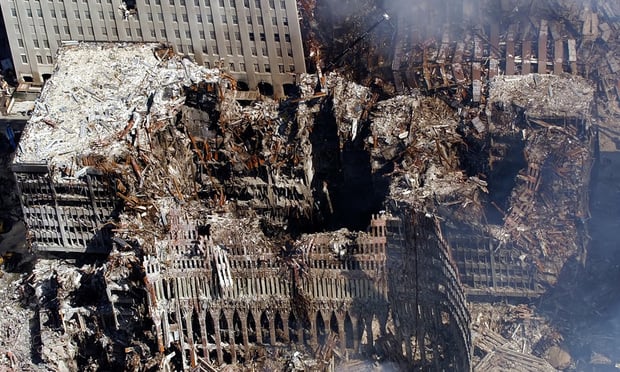 The World Trade Center on Sept. 17, 2001. Photo courtesy of the U.S. Navy.
The World Trade Center on Sept. 17, 2001. Photo courtesy of the U.S. Navy.
A Manhattan federal judge has dismissed 138 lawsuits from plaintiffs who had targeted the Battery Park City Authority over exposure to toxic dust at Stuyvesant High School following the Sept. 11, 2001, terrorist attacks, finding they were already covered by a 2010 settlement with the city and its insurer.
The cases, which were dismissed on Aug. 30, were the last of about 11,000 suits that had been filed over cleanup work near the World Trade Center. U.S. Judge Alvin K. Hellerstein in June 2010 approved a $712 million settlement agreement between rescue and cleanup workers and the city and its third-party liability insurer, WTC Captive Insurance Co.
Recommended For You
Want to continue reading?
Become a Free PropertyCasualty360 Digital Reader
Your access to unlimited PropertyCasualty360 content isn’t changing.
Once you are an ALM digital member, you’ll receive:
- Breaking insurance news and analysis, on-site and via our newsletters and custom alerts
- Weekly Insurance Speak podcast featuring exclusive interviews with industry leaders
- Educational webcasts, white papers, and ebooks from industry thought leaders
- Critical converage of the employee benefits and financial advisory markets on our other ALM sites, BenefitsPRO and ThinkAdvisor
Already have an account? Sign In Now
© 2025 ALM Global, LLC, All Rights Reserved. Request academic re-use from www.copyright.com. All other uses, submit a request to [email protected]. For more information visit Asset & Logo Licensing.








